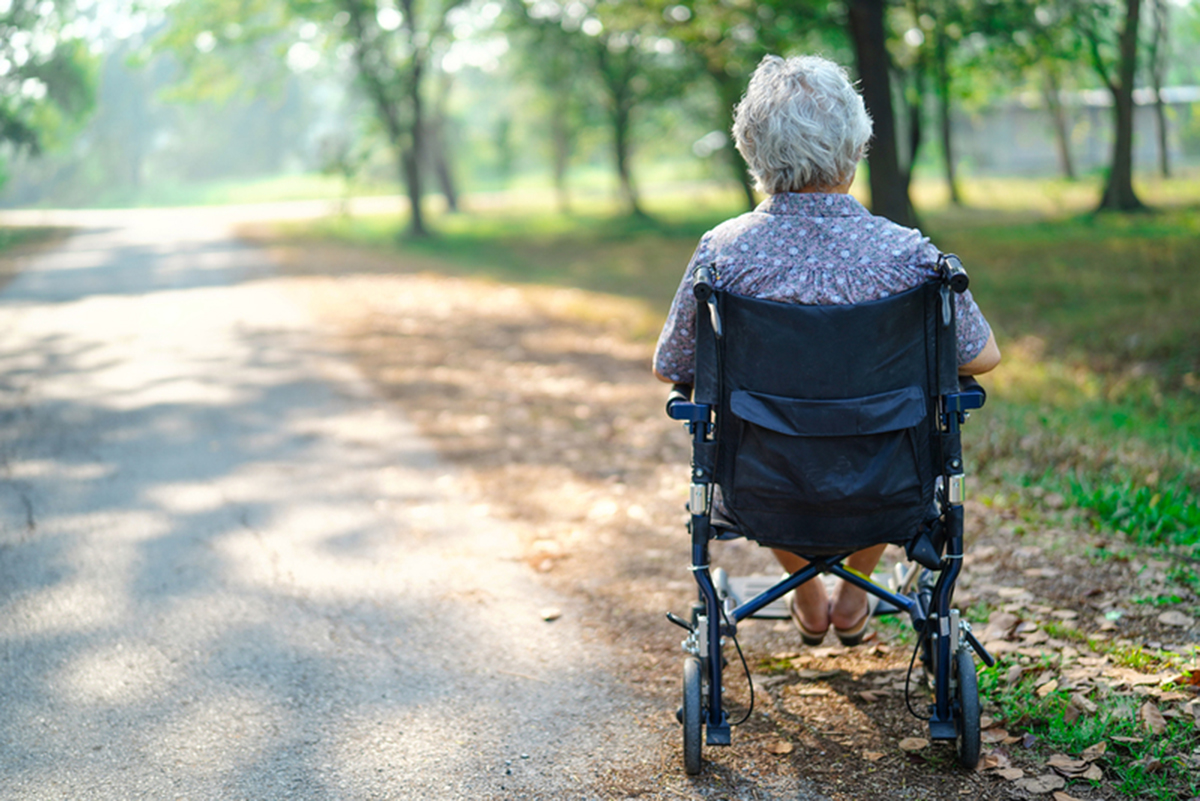Most of us have a vague idea of what dementia is, thinking of the condition as the rapid cognitive decline that so often goes hand in hand with old age. In truth, dementia is not a single disease. It is simply a descriptor given to the memory loss and functional thinking skills many older adults experience. People who suffer from dementia lose their ability to remember recent events, their control over their emotions, and their reasoning skills. Their personalities may change drastically, sometimes seemingly overnight.

Dementia mostly strikes old people, but it's not a natural or normal part of aging — and it's not limited to people over 65, either. People who live with dementia may be aware of that fact, particularly in the early stages, forcing them to fully experience the pain that comes with knowing your abilities are declining rapidly and you have little control over the process.
Types of Dementia
Dementia can be caused by a variety of conditions — dementia is complex, and Alzheimer's isn't the only culprit. Among the most common types of dementia are:
- Alzheimer's disease, thought to be caused by a combination of abnormal plaques and folded proteins in the brain and lost connections between neurons. Memory is affected first, followed by language, logic, and the ability to adopt socially-acceptable behaviors.
- Frontotemporal dementia, a form of dementia that impacts people under 60, is caused by damage to the brain's frontal and temporal lobes.
- Vascular dementia is caused by damage to the blood vessels that serve the brain, or conditions that block the flow of oxygen to the brain. Symptoms can strike suddenly.
- Lewy body dementia is caused by abnormal deposits of alpha-synuclein, a protein, in the brain. Vascular dementia usually affects people aged 60 to 75.
Any one patient may also have dementia as a result of a combination of two or more of these and other conditions. This is called mixed dementia, and it is more difficult to treat.
What Are the Most Common Signs of Dementia?
The signs and symptoms of dementia may initially appear to be a normal part of aging. As we get older, we all become a little more forgetful, and we all slow down a bit. As the disease progresses, however, people around the patient begin to notice that something is truly "off." The patient may also notice these changes, and some people in the early stages of dementia will seek medical help after discovering their thinking patterns and abilities are different than before.
The most common symptoms seen in any kind of dementia include:
- Forgetfulness, including getting lost in places that were once very familiar.
- Losing the ability to keep track of time.
- An inability to remember recent events, while being able to recall long-ago events in great detail.
- Forgetting the names of loved ones, including close relatives like children and grandchildren, and even failing to remember that one had such relatives.
- General confusion.
- Losing skills one once had, such as playing chess.
- Finding it harder and harder to communicate.
- Personality changes and mood swings.
- Wandering and getting lost.
- Needing help with daily tasks.
Are Rates of Dementia Increasing?
No! Recent research has actually brought some good news — dementia rates are gradually declining, by about 13 percent per year, a large study that included over 49,000 adults from North America and Europe revealed. If the current trend continues, that means you're much less likely to develop dementia in your 60s, 70s, or 80s than the older adults in your family currently are.
Baby Boomers are an exception. This generation had less wealth and higher levels of depression and loneliness during their formative years. They currently have higher rates of diabetes and cardiovascular disease, both of which are risk factors for dementia. The problem of dementia is set to get a lot worse before it can get better, then.
Even if the rate of dementia is no longer increasing, and is even decreasing, higher numbers of people are set to develop the disease in the future. That's because there are more people on Earth than ever before, and we're living longer and longer lives. By 2030, 78 million people will likely live with dementia. This number is set to rise to 139 million people by 2050.
The Race Against Dementia Is On
As of now, there is no cure for dementia. The cognitive changes that a person with dementia experiences cannot be reserved. They can, however, be managed and slowed down. Treatments for dementia include medications that slow down brain changes and protect the brain, regular exercise, puzzles, a healthy diet, and lots of social contacts.
Scientists have been stumped by dementia for decades, yet never gave up hope to find better treatments — and eventually a cure. Most recently, in late 2022, a new drug called lecanemab was shown to halt the cognitive decline seen in people with Alzheimer's Disease. The drug attacks the protein clumps formed in the brains of people with Alzheimer's, which scientists believe to be at the root of this particular cause of dementia.
Although lecanemab won't help people at risk for vascular dementia or other causes of dementia, the drug's success has been labeled a major scientific breakthrough.
Similar major breakthroughs may be just around the corner, perhaps with the end result of putting a stop to this terrible disease. Scientists won't rest until a cure is found, no matter how long it takes.
- www.cdc.gov/aging/dementia/index.html
- www.nia.nih.gov/health/what-alzheimers-disease
- www.nia.nih.gov/health/what-are-frontotemporal-disorders
- www.nia.nih.gov/health/vascular-dementia
- www.nia.nih.gov/health/what-lewy-body-dementia-causes-symptoms-and-treatments
- www.who.int/news-room/fact-sheets/detail/dementia#:~:text=Although%20dementia%20mainly%20affects%20older,million%20new%20cases%20every%20year.
- www.aarp.org/health/dementia/info-2020/dementia-rates-falling-except-boomers.html
- www.alz.org/alzheimers-dementia/treatments

